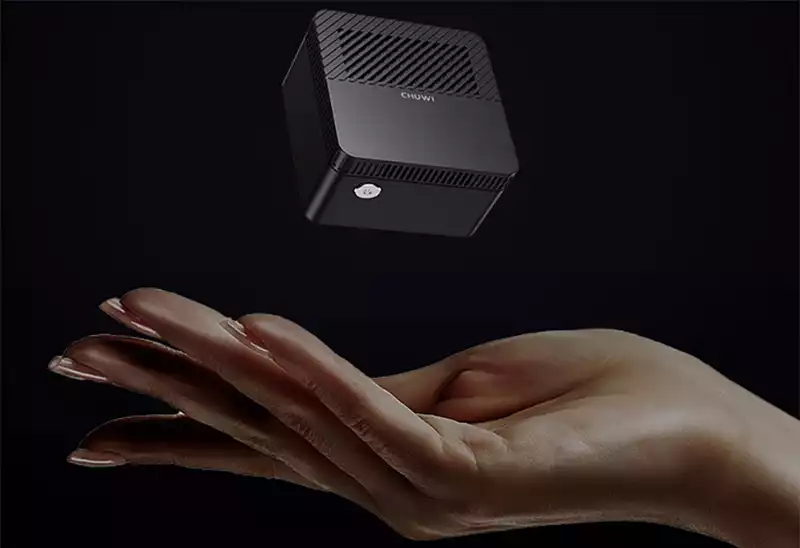The antithesis of the massive full-tower computer is the mini-PC, like Intel's NUC or Zotac's Zbox machines. They are small enough to fit on a desk or in an entertainment center without sticking out. Then there is the LarkBox, a PC so small you can stuff it in your pocket or hold it in the palm of your hand. [As Chinese manufacturer Chuwi advertises on the LarkBox's Indiegogo page, this is the basis for the claim that it is "the world's smallest 4K mini PC." Measuring approximately 2.4 x 2.4 x 1.7 inches, I'm not going to quibble with this claim since it is a different form factor than Intel's Compute Stick, which measures 4.06 x 1.46 x 0.47 inches and can also output 4K.
The LarkBox is an attractive system with an Intel Celeron J4115 processor, 6GB of LPDDR4 RAM, and 128GB of eMMC storage. There is also an M.2 slot under the hood to upgrade storage with a larger, faster SSD if needed.
Interestingly, Intel's website does not list the Celeron J4415, but it is a quad-core chip with a base clock of 1.8 GHz, boost clock of 2.4 GHz, and UHD 600 graphics.
Connectivity is fairly robust, and the LarkBox has two USB 3.0 ports, a USB Type-C port, an HDMI port, a 3.5mm audio jack, and a microSD card slot. On the wireless side, it has Wi-Fi 5 (802.11ac) and Bluetooth 5.
The early bird price on Indiegogo is set at $155, and it will likely sell for $199 when it launches in August. This is far above something like the Raspberry Pi, but considerably cheaper for an x86 PC. You may groan, but at this price, I'd be willing to take the plunge and buy one if I thought I could use it.
The question arises here. While it is certainly a niche product, it could be used as a laptop replacement, a media server, or a lightweight retro game emulator. On the latter point, YouTube's Taki Udon has posted a 12-minute video showing how it handles a variety of emulation tasks, including NES, SNES, N64, PS1, Dreamcast, and PSP. He also manages to get DMC: Devil May Cry to run on low settings. Check it out:
Our friends at TechRadar have also tried LarkBox and were generally impressed.
"The Chuwi LarkBox would have been a great buy at $300, but at $199 it's almost a necessity. It's relatively speedy, very compact, and surprisingly well designed. The only problem is finding a use for it," writes TechRadar.
It will be interesting to see if more options arise in this small space, especially when Intel's low-power Lakefield processor comes along.
In any case, LarkBox is a new addition to Indiegogo. While we are always leery of crowdfunding projects, given that several prototypes have already shipped, we are cautiously optimistic that these units will actually ship this summer.


Comments